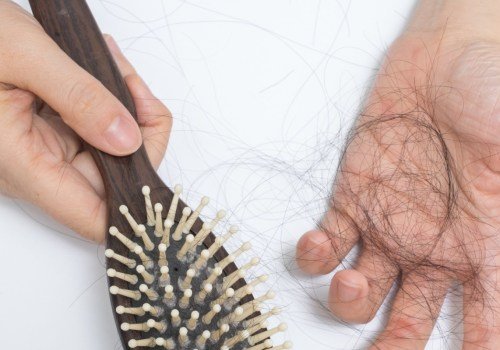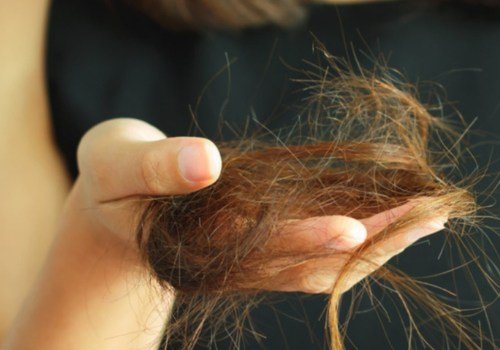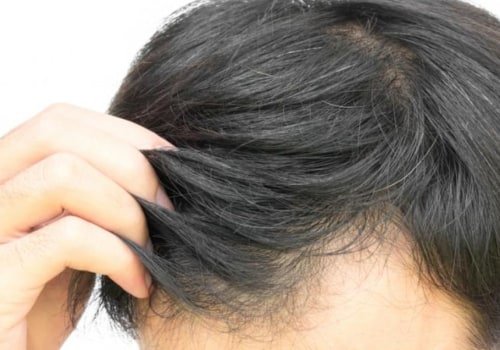Limiting calories is essential for weight loss, but excessive restriction leads to hair loss, since lack of nutrition does not complement hair growth. Hair loss due to sudden decrease in body weight is not permanent. Hair loss due to weight loss is not dangerous or permanent. In general, the body adjusts in a few months and hair production resumes.
Prevention and treatment of telogen effluvium focus on proper nutrition and diet. Maintaining a balanced diet while avoiding fast diets and quick fixes is important for long-term weight loss success, as well as avoiding telogen effluvium. Like fast diets, restrictive diets that eliminate entire food groups can lead to hair loss as a result of nutrient deficiency or stress. My hair has become much thinner and thinner since I lost weight, sometimes it came out in what looked like a handful when washing it.
While it starts to improve as I get closer to my target weight, I try to help speed up the process by doing these five things. Your body needs adequate calories and protein to feed the hair follicles. According to some experts, the more weight you lose, the more likely you are to experience some degree of hair loss. Losing and regaining weight for many years can affect your metabolism and hair growth.
Some people may experience hair loss within 3 to 6 months of starting diets (e.g. In general, a balanced and healthy diet should reverse hair loss within six months. Hair loss due to weight loss is usually due to a condition known as telogen effluvium, according to the American Osteopathic College of Dermatology. Under normal circumstances, hair grows up to ½ inch per month for about 2 years and then enters a resting phase known as telogen.
At the end of the resting phase, old hairs fall out to make room for new hairs. Approximately 10 percent of the hair enters the resting phase. The physical and emotional stress of the diet can cause more hair than normal to enter the resting phase and fall out when new hairs appear. Since hair loss due to weight loss is not a permanent condition, it is quite easy to recover the lost hairline.
To achieve this, a dedicated treatment is followed for hair growth after weight loss. Also make sure you're getting the right amount of calories and vital nutrients. In addition, a hair growth treatment is followed to lose weight to recover bald patches or lost hairline. Fortunately, hair loss from weight loss is usually temporary and will usually grow back once you eat an adequate amount of protein again.
For example, sudden weight loss and restrictive diets have been linked to a condition known as acute telogen effluvium (TE), one of the most common causes of widespread scalp hair loss (1,. Hair loss during or after weight loss can be caused by several factors, including nutrient deficiencies. PRP stands for platelet-rich plasma and is one of the most recommended treatments for hair growth. Use Toppik Building Hair Fibers to instantly thicken any visibly sparse areas, especially around the hairline and crown.
The condition is often the result of nutrient deficiencies that arise from a severely restrictive diet or weight loss surgery. Hair loss occurs when stress on the body causes hair to stop growing and enter the catagen phase too early. Telogen effluvium after weight loss can be the result of nutrient deficiencies or losing a lot of weight too quickly. Dieting can cause physical and emotional stress, causing more hair than normal to enter the telogen phase.
Weight loss and nutrient deficiencies associated with restrictive diets are also linked to other types of hair loss. Also, if you follow a dietary pattern that restricts many foods, such as a vegetarian or vegan diet, which may be low in nutrients associated with hair loss, such as iron and zinc, be sure to include nutrient-rich foods and supplement with nutrients that your diet lacks (22, 23, 2). had much lower levels of zinc and vitamin B12 both before and after surgery (. hair loss after weight loss is a common occurrence that can be the result of stress in the body or nutrient deficiencies.
However, research suggests that if you don't have a nutrient deficiency, supplements may not benefit hair loss (. . .





